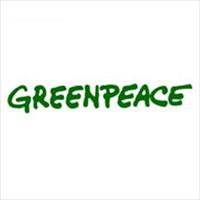Greenpeace undercover operation exposes illegal dumping of e-waste in Nigeria

Electronics companies must take responsibility for recycling their products
Electronic waste intended for recycling is being illegally exported from the United Kingdom to Nigeria disguised as second-hand goods, Greenpeace exposed in an undercover operation. Nigeria is just one of many destinations for the developed world's toxic e-waste.
The operation, carried out with Sky television, highlights how electronic companies' failure to take responsibility for recycling their products is expanding the trade in hazardous waste from Europe to the developing world, poisoning people and the environment.
"Companies can stop this illegal toxic trade now by ensuring their goods are free from hazardous components. It is critical they take full responsibility for the safe recycling of their products and put an end to the growing e-waste dumps that are poisoning people and the environment across the developing world," said Martin Hojsík Greenpeace International Toxics Campaigner.
The poorest people, in many cases children, break apart TVs, mobile phones, game consoles and other electronic items that arrive in their tonnes across the developing world. With no safety measures, they are exposed to highly toxic chemicals, including mercury, which damages the brain; lead, which can damage reproductive systems; and cadmium, which causes kidney damage.
Acting on a tip-off, Greenpeace launched an undercover operation, taking an irreparably broken TV, fitted with a tracking device, to the UK's Hampshire County Council for recycling. Instead of being safely dismantled in the UK or Europe, as required by law, the Council's 'recycling' company, BJ Electronics, passed it on as 'second hand goods' after which it ended up in Nigeria.
At no point, before being crammed into a container with similar TVs and shipped, was it tested to see if it worked. It is illegal to export broken electronic goods under EU legislation. Greenpeace followed the complete e-waste trafficking route by hiding a tracking device inside the TV that provided location updates via GPS.
Thousands of old electronic goods and components leave the EU for Africa every day, despite regulations prohibiting the trade in e-waste. Some will be repaired and reused, but many are beyond repair meaning they will eventually be dumped in countries where no facilities exist for safe recycling. Europe, the United States, Japan and South Korea are using developing countries, including Nigeria, Ghana, Pakistan, India and China, as toxic e-waste dumping grounds.
Electronics manufacturers need to increase their efforts to collect and responsibly treat e-waste. It is vital they introduce voluntary take-back schemes and remove hazardous substances from their products so they can be recycled more safely and easily.
 Back and Next - Back and Next
Back and Next - Back and Next See Also - See Also
See Also - See Also